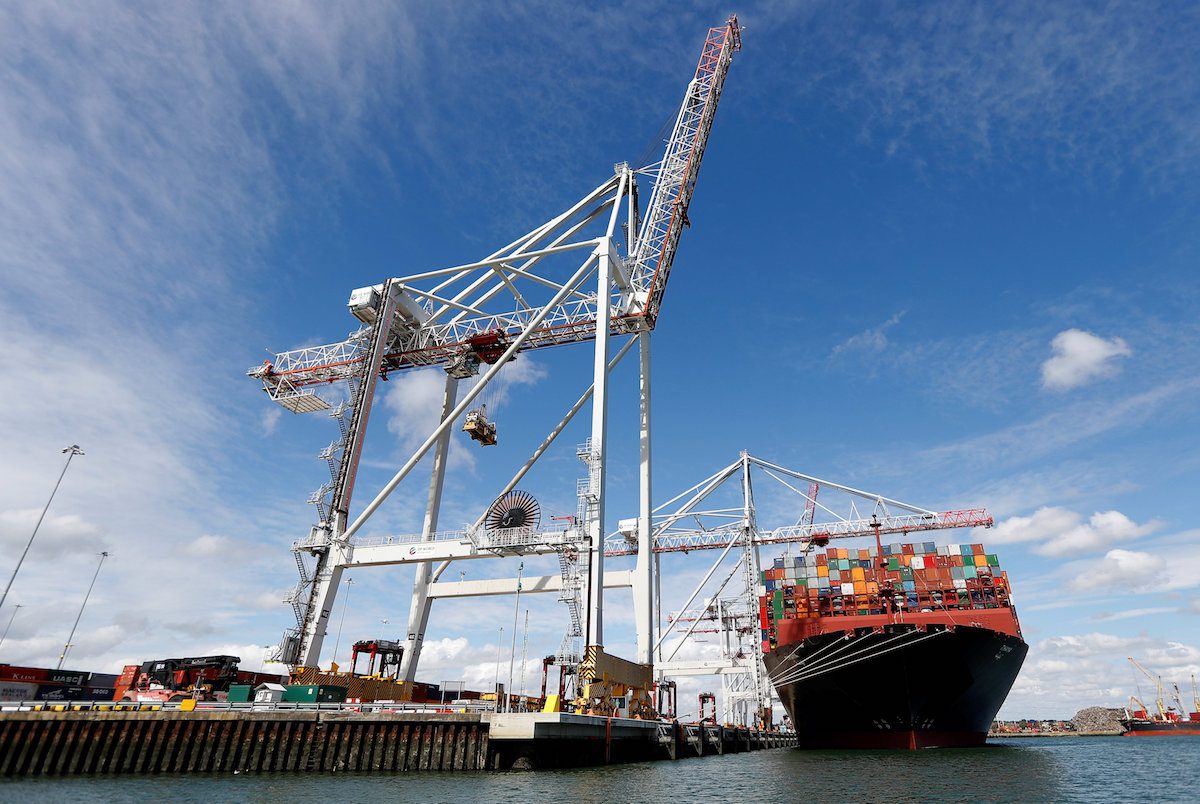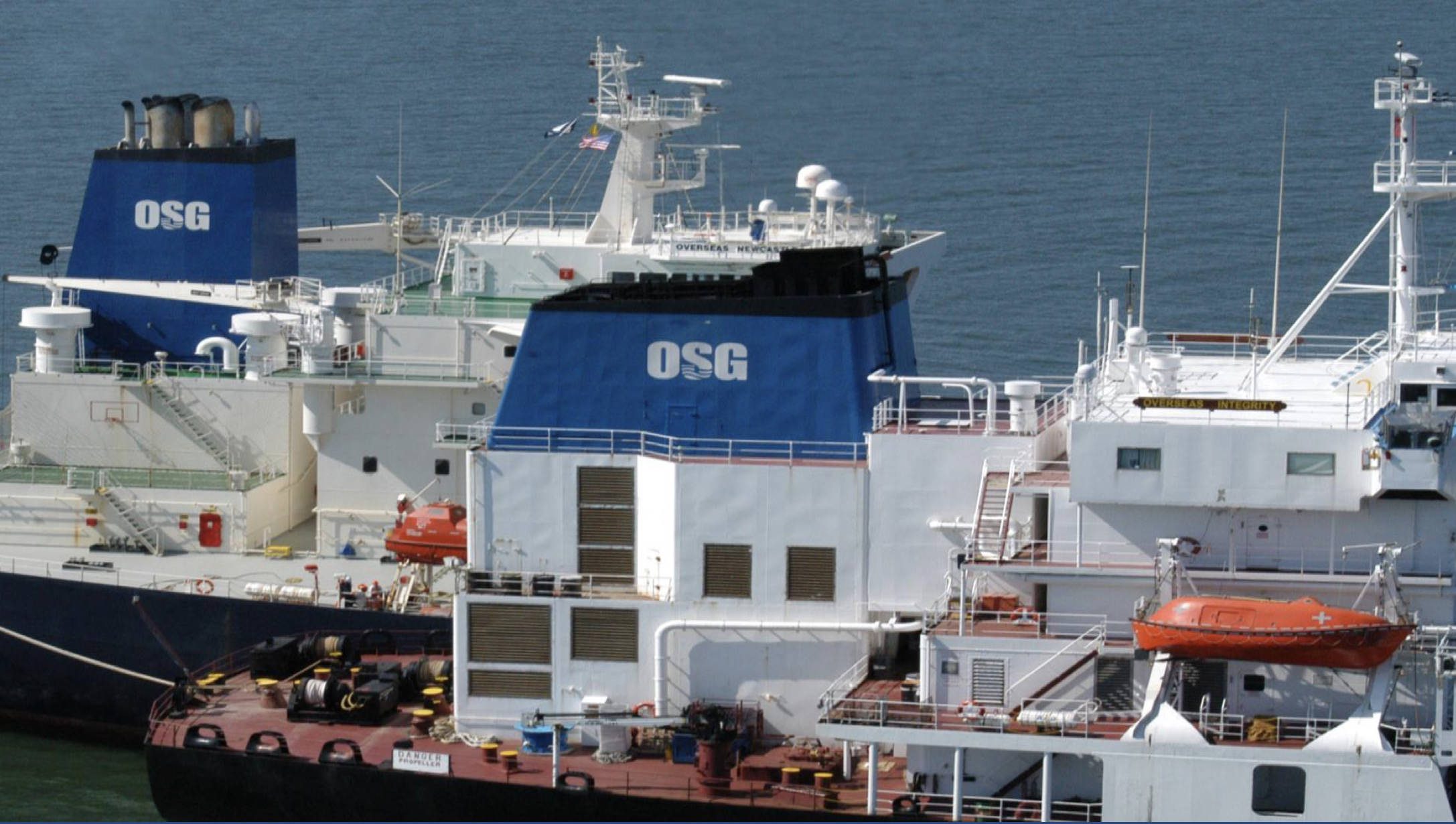A cargo ship at the dock at the ABP port in Southampton, Britain, on August 16, 2017. Picture taken August 16, 2017. REUTERS/Peter Nicholls
The British Ports Association is calling on the UK Government to deliver on the Prime Minister’s pledge of ‘frictionless’ trade after Brexit.
Following Monday’s agreement between UK and EU negotiators on the terms of a transition deal and ahead of the EU Council meeting later this week, the British Ports Association has published a strategic report calling for a pragmatic deal with the EU on both customs and regulatory recognition that allows both British and European businesses to get their goods across borders as quickly as possible.
The report, titled A Brexit Dividend: Supporting Trade and Growth, outlines the potential opportunities for ports under a Brexit deal. However, the Association has warned that the direction of travel is increasingly heading towards a situation where border arrangements at ports will reflect ‘no deal’ Brexit scenario. Richard Ballantyne, Chief Executive of the British Ports Association, said:
“A potential Brexit free trade deal will be welcomed by many in the sector but this is unlikely to cover border processes. In terms of border operations the impact of leaving the Customs Union and Single Market is now fast becoming a ‘no deal’ scenario for ports. Indeed this means that new border controls on UK-EU trade are likely to be unavoidable and that delays at certain ports and important trade gateways are a distinct possibility.
To a certain extent the UK Government will be able to decide its own border policies but for EU ports with UK links, full frontier checks, including customs and environmental health standard checks could have a severe impact upon the UK,” Mr. Ballantyne added.
The nine page report highlights the importance of the border continuing to be a tax point, rather than a check point, and notes that it is crucial to maintaining the flow of trade that any necessary checks be carried out away from the front lines. Mutual recognition of standards, scaling up Authorised Economic Operator schemes and membership of the Common Transit Convention are all important in supporting frictionless trade, according to the report.
The report also sets out the industry’s position on other potential opportunities in a number of areas such as free ports, port connectivity, planning, the regulatory regime, and fisheries. The Association has pressed for regulatory review on issues such as planning rules, revocation of the soon to be introduced Port Services Regulation and a pragmatic solution on fisheries, including a continued grants scheme and management of our own quotas.
“Post-Brexit there will of course also be opportunities for regulatory adjustments to help ports grow and develop. Ports are important international and regional gateways and provide hubs for economic activity,” said Mr. Ballantyne. “Once the UK leaves the EU, the Government will be able to create favourable conditions for ports to grow and develop through reformed planning rules, the removal of the EU’s Port Services Regulation and a new but sustainable fisheries policy.”
David Dingle CBE, Maritime UK Chairman, said:
“This report shows that there are substantial potential benefits to leaving the EU for our ports and wider maritime sector. However, in order to realise these benefits, we first need to get a deal that prevents delays and disruption at our ports.
“It is in both the UK and EU’s interest to get that deal. Failure to get that frictionless deal will not only see delays and disruption at ports like Dover, Holyhead and Portsmouth, but also in the EU at ports like Zeebrugge, Calais and Dublin.
“We are also pushing for serious investment in our infrastructure. That investment is an intelligent economic move and one that needs to be made to safeguard Britain’s future as an outward-looking trading hub in the wake of Brexit. By facilitating trade we will attract inward investment at our ports and breathe new life into our deprived coastal economies. In doing this, global Britain will be a success,” Mr. Dingle said.
The British Ports Association represents the interests of over 100 port members, covering more than 350 ports, terminal operators and port facilities.
Unlock Exclusive Insights Today!
Join the gCaptain Club for curated content, insider opinions, and vibrant community discussions.

 Join The Club
Join The Club







![A screengrab of a map showing an earthquake Mindanao, Philippines on Dec 2, 2023. (Image: US Geological Survey [USGS])](https://gcaptain.com/wp-content/uploads/2023/12/Screenshot-2023-12-02-at-10.45.17-AM-copy.png.webp)





